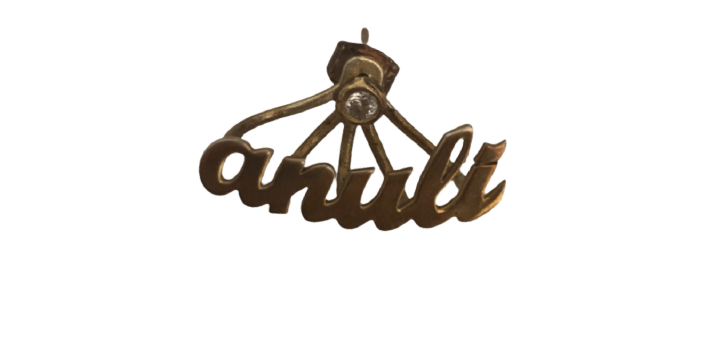from tipping the tightrope to floating above all expectations
Janelle Monae’s Journey Towards Self-Liberation
Digital Artwork by Anuli Akanegbu.
Janelle Monae used to tip on the tightrope, but now the artist who uses the pronouns of she/her, they/them, and “free-ass motherfucker,” floats.
When Janelle Monae released her debut studio album the ArchAndroid in 2010, reviews of the artist marked her as “difficult to dissect” (Guardian 2010) and “hard to pin down” (NPR 2010). With a sound and a persona that both pulled from the past and looked to the future, Monae was hard to categorize in an industry that is driven by easy categorization. The reception to her highly conceptual approach to music artistry was, at times, as black and white as the “uniforms” (a nod to her working-class family) that she became known for – people either loved it or hated it.
Janelle Monae was acutely aware of the increased expectations that came with fame. In “Tightrope,” the first-released single of the album, Monae uses the metaphor of a tightrope to help explain the complex nature of fame. That said, Monae is clear on the track that she is not walking or running on the tightrope, she’s tipping (lightly touching) the tightrope. In a 2010 interview for the now-defunct UK-based media platform, SoulCulture, Monae shared that she penned the song “Tightrope” to serve as a tutorial for life and finding balance in managing the expectations of the outside world. In “Tightrope”, she shares, finding “balance” is about not getting too “high” on praise or too “low” on opinions and critiques that do not serve you well.
The high-energy song features a verse from one of Monae’s musical mentors, Big Boi, of OutKast who proclaims on the track, “you gotta keep your balance or you fall into the gap.” Big Boi’s groupmate Andre 3000 has also previously employed the metaphor of the tightrope to air out his own grievances about the complex nature of fame. In OutKast’s song “Liberation” from the duo’s third studio album, Aquemini (1998), Andre 3000 states, “There’s a fine line between love and hate.” Monae similarly sings on “Tightrope” that “When you get elevated, They love it or they hate it.” In both songs, the artists find liberation from following their own inner compass. For Andre 3000, the solution to navigating opposing viewpoints is that you “can’t worry ‘bout what a nigga think.” Three Stacks goes on to say that this kind of mental detachment represents “liberation,” something he shares that he wants to achieve. In “Tightrope,” Monae similarly encourages listeners to “dance up on them haters, keep getting funky on the scene.” As individual artists, Janelle Monae, Big Boi, and Andre 3000 have spent their careers striving for liberation by making choices that honor their “true” selves rather than the versions of themselves that others expect them to be.
Monae’s career to date, in particular, has been about choice. As an artist, she has always chosen to go against the current of what is expected of female artists and towards the wave of the future. In her latest single "Float,” and through her public coming-out as pansexual, Janelle Monae encourages listeners to embrace the fullness of life instead of falling into the trappings of dichotomous (binary) thinking. The song “Float” is the first track of the artist’s first album in five years, “The Age of Pleasure” (2023). While the Janelle Monae that once tipped on the tightrope was concerned with keeping her balance, the Janelle Monae of the present-day has opted to instead float above any and all expectations, so that she may better hear herself and tend to her own needs. In the first verse of “Float,” Monae explains her evolution in part by saying, “I used to walk into the room head down, I don’t walk, now I float.”
Janelle Monae’s “Float” and the full “Age of Pleasure” album offers a model for self-making and community-building that are both earthly born and otherworldly. The visuals that Monae has released to promote “The Age of Pleasure” place her in a setting that is best described as a “paradise.” Although the visuals have become quickly sexualized based on the social media discourse surrounding her album rollout, the paradise in which Monae quite literally bares her all arguably serves as yet another metaphor. In “Float” and throughout her new album, Monae uses her imagination to transport us into another world. Rather than escaping into her established brand of imagining what the future could look like, Monae encourages us to reimagine our lives as they are now. What would it look like to create a paradise for ourselves, or a community for ourselves, where we wouldn’t be afraid to bare it all and have it all? What would it feel like to drop the weight of external expectations, become light as a feather, and float instead? To quote Andre 3000, “Now that’s liberation and, baby, I want it.” It may seem as if the only option for Black artists is to continue to tip on the tightrope between love and hate, but in “Float” Janelle Monae offers another path forward, or more precisely, a path up and away from falling into the gap. To “Float” is to acknowledge who we used to be and to celebrate who we have become all while embracing the fact that we are still in motion.

